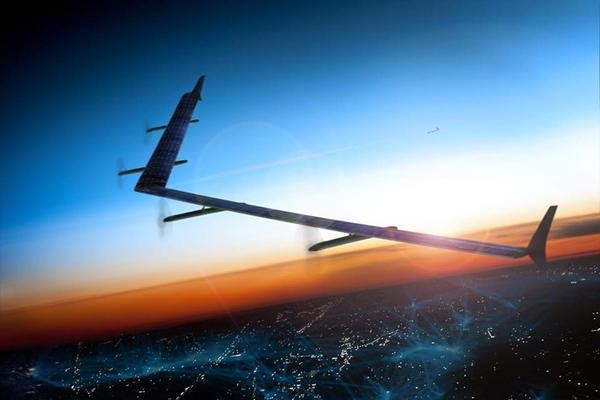Facebook is just one tech giant that is doing tests to connect the rest of the world to the Internet, which includes about 4.4 billion people of the Earth's population who have neither a wired nor wireless Web connection. Various technology companies want to link them to high-speed Internet access through mobile devices rather than expensive laptop or desktop computers, by laser-beaming it via sky-based tools such as satellites, drones, or weather balloons.
Facebook CEO Mark Zuckerberg made a blog post on June 1, Wednesday confirming reports that his company might use satellites and drones to connect developing countries to the Net. The social network is developing a "laser communications system." This innovative tech would transfer data from the sky, greatly boosting the transmission speed over long distances.
The green-and-red laser system is still in its early development stage. A Facebook representative told Quartz that it had no further information about the special project.
However, the top-secret program could change how the world's population without a fixed Internet connection could be linked to the Web. The lasers, which would typically be invisible, could be paired with the social media's drone tech, according to The Indian Express.
Facebook's drones can likely zap the Internet down to people for a lower price tag than the weather balloons on which it is conducting experiments. However, they would also be more annoying.
For example, commercial drones can only fly for about half an hour in one session, and are quite loud, according to Quartz. In several countries their operator must also have visual contact with the drone.
However, the rules and regulations are changing in the United States.
Amazon plans to set up an autonomous drone-delivery system in about one year. Thus, Facebook could use similar tech to deliver the Net.
Zuckerberg's drone project is linked to Internet.org. The Facebook charity's goal is to deliver the Internet to each and every person in the world, and currently provides online access to some websites, without charging mobile Internet fees.
In another recent development Google and Facebook both scrapped their plans to use low-orbit satellites to provide Internet access to the world. Facebook was likely concerned about their cost recovery.



























